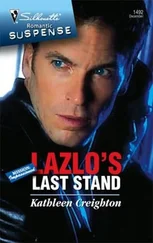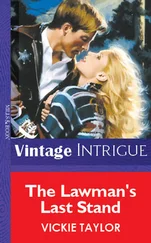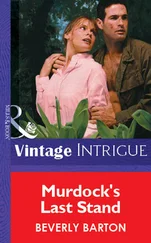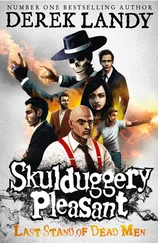“I wasn’t confused,” said Roger. “I made a plan and I stuck to it and everything seemed fine.”
“Or so you thought,” said the Major.
“She never said a word,” said Roger. “Maybe she was a bit quiet sometimes, but I couldn’t be expected to know what she was thinking.”
“You are not the first man to miss a woman’s more subtle communication,” said the Major. “They think they are waving when we see only the calm sea, and pretty soon everybody drowns.”
“Exactly, I think,” said Roger, and then he added, “I asked her to marry me, you know? On Christmas Eve, before the party at Dagenham’s. I felt bad about the whole thing and I was prepared to move our plans along.” He tried to sound nonchalant, but a crack in his voice betrayed him and the Major was suddenly flooded with feeling and had to dry his hands on a towel. “I mean, I told her maybe we could even try again next year, if I got promoted through this Ferguson deal.” He sighed and his eyes assumed a dreamy look that might have been emotion. “Maybe a boy first, not that you can really control these things. A boy called Toby and then a girl-I like Laura, or maybe Bodwin-and I told her we could use the little bedroom here as a nursery and then maybe build on a playroom, like in a conservatory.” He looked with confusion at the Major. “She slapped me.”
“Oh, Roger,” said the Major. “Tell me you didn’t.”
“I ask her to marry me and she acts like I’ve asked her to eat human flesh or something. I’m laying out my hopes and plans and she’s screaming at me that I’m so shallow a minnow would drown in my depths. I mean, what does that even mean?”
The Major wished he had known, coming upon Sandy in the darkened house that night. He wished he had said something at the dance, when Mrs. Ali thought Sandy seemed troubled. They might have really done something then. He wondered whether it was his fault Roger had the perceptiveness of concrete.
“I think perhaps your timing was not sensitive, Roger,” said the Major quietly. He felt, in the area of his heart, a slow constriction of sorrow for his son and wondered where or when he had failed, or forgotten, to teach this boy compassion.
“Anyway, who needs that kind of drama,” said Roger. “I’ve had plenty of time to consider and now I’m thinking seriously about making a go of things with Gertrude.” He looked more cheerful. “There’s still a lot of mileage in leveraging an old country name like hers, and she’s always adored me. Under the right conditions, I might be prepared to make her very happy.”
“You can’t negotiate love like a commercial transaction,” said the Major, appalled.
“That’s true,” said Roger. He seemed perfectly happy again and rummaged in the bag for an apple. “Love is like a big fat bonus that you hope kicks in after you negotiate the rest of the term sheet.”
“There is no poetry in your soul, Roger,” said the Major.
“How about ‘Roses are red, / violets are blue, / Sandy is gone, / Gertrude will do’?” suggested Roger.
“It really won’t do, Roger,” said the Major. “If you don’t feel any real spark of passion for Gertrude, don’t shackle yourselves together. You’ll only be dooming both of you to a life of loneliness.” He smiled wryly to hear himself repeating Grace’s words as his own. Here he was dispensing them as advice when he had only just taken them in as revelation. So, he thought, do all men steal and display the shiny jackdaw treasure of other people’s ideas.
As the Major was preparing to leave, Roger suddenly asked him, “Where are you diving off to, anyway? Who’s this friend you’re off to visit?”
“Just someone who relocated up north. Grace wanted me to check in on her.”
“It’s that woman again,” said Roger, narrowing his eyes. “The one with the fanatic nephew.”
“Her name is Jasmina Ali,” replied the Major. “Please show enough respect to remember her name.”
“What are you doing, Dad?” said Roger. “Wasn’t the golf club fiasco enough to warn you off? She’s a bad idea.”
“Chimpanzees writing poetry is a bad idea,” said the Major. “Receiving romantic advice from you is also a bad, if not horrendous, idea. Spending an hour dropping in on an old friend is a good idea and also none of your business.”
“Old friend, my arse,” said Roger. “I saw how you looked at her at the dance. Everyone could see you were ready to make a fool of yourself.”
“And ‘everyone’ disapproved, of course,” said the Major. “No doubt because she is a woman of color.”
“Not at all,” said Roger. “As the club secretary mentioned to me in private, it’s not remotely a question of color but merely that the club doesn’t currently have any members who are in trade.”
“The club and its members can go to hell,” said the Major, spluttering in anger. “I’ll be glad to watch them throw me out.”
“My God, you’re in love with her.”
The Major’s immediate reaction was to continue to deny it. While he tried to find some intermediate response, something that would express his intention without exposing him to ridicule, Roger said, “What on earth do you hope to accomplish?” The Major felt a rage unlike anything he had felt toward his son before and he was provoked into honesty.
“Unlike you, who must do a cost-benefit analysis of every human interaction,” he said, “I have no idea what I hope to accomplish. I only know that I must try to see her. That’s what love is about, Roger. It’s when a woman drives all lucid thought from your head; when you are unable to contrive romantic stratagems, and the usual manipulations fail you; when all your carefully laid plans have no meaning and all you can do is stand mute in her presence. You hope she takes pity on you and drops a few words of kindness into the vacuum of your mind.”
“Pigs’ll fly before we see you at a loss for words,” said Roger, rolling his eyes.
“Your mother rendered me silent the first time we met. Took the witty repartee right out of my mouth and left me gaping like a fool.”
The Major remembered her thin blue dress against an intense green summer lawn and the evening sun catching at the edges of her hair. She held her sandals in one hand and a small cup of punch in the other and she was screwing up her lips against the sweet stickiness of the foul drink. He was so busy staring that he lost his way in the middle of a complicated anecdote and had to blush at the scathing guffaws of his friends, who had been depending on him for the punch line. She had pushed into the circle and asked him directly, “Is there something to drink other than this melted-lolly stuff?” It had sounded like poetry in his ear and he had steered her away to the host’s pantry and unearthed a bottle of Scotch and let her do all the talking while he tried not to gaze at her dress skimming the soft pyramids of her breasts like a scarf forever falling from a marble-sculpted wood nymph.
“What would Mother think about you chasing all over England after some shopgirl?” asked Roger.
“If you say ‘shopgirl’ one more time, I shall punch you,” said the Major.
“But what if you marry her and she outlives you?” Roger asked. “What happens if she won’t give up the house and-Well, after all the fuss you made about the Churchills, I don’t see how you can just hand everything over to a complete stranger.”
“Ah, so it isn’t a question of loyalty as much as of patrimony,” said the Major.
“It’s not the money,” said Roger indignantly. “It’s the principle of the thing.”
“These things are never neat, Roger,” said the Major. “And speaking of your mother, you were there when she begged me not to remain alone if I found someone to care for.”
Читать дальше












